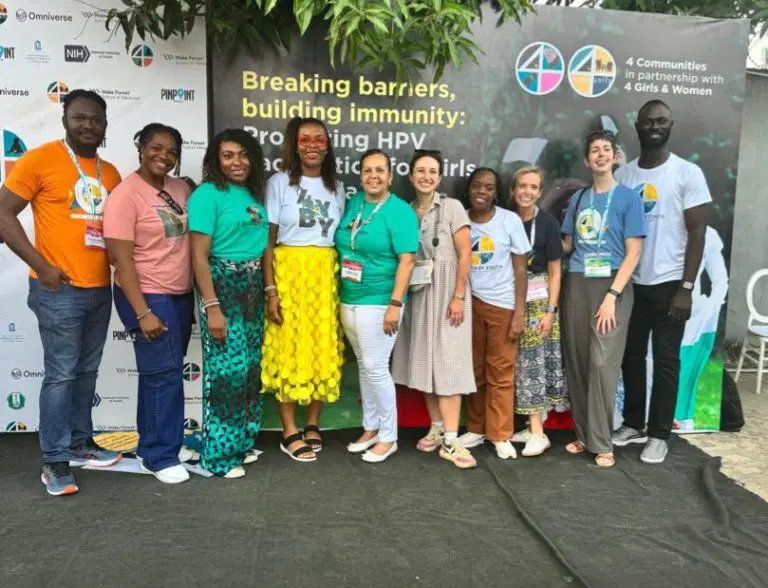Health
COVID-19: Nigeria records highest cases tally in 6 months amidst delta variant worries –NCDC

As states across the country struggle to curb the spread of COVID-19 Delta variant, the nation is now averaging more than 700 new cases, says the Nigeria Center for Disease Control (NCDC ).
The NCDC, which disclosed this known via its verified website on Thursday morning, added that the country registered 790 additional infections on Wednesday, a sharp increase from the 610 cases it registered a day earlier.
The News Agency Of Nigeria (NAN) reports that owing to a sudden surge, driven by the highly transmissible Delta variant, the country’s average daily COVID-19 cases showed that Wednesday’s increase was the highest since February.
The surge resulted in the federal government calling on citizens to take responsibility and adhere to preventive measures in the country, especially as the caseload keeps rising on the heels of an ongoing doctors strike.
The NCDC noted that states nationwide were struggling to curb the spread of the Delta variant, with the situation becoming alarming particularly in Lagos, Akwa-Ibom, Rivers , Oyo states and the FCT, where the strain was accounting for a large number of the cases.
Due to the spread, NCDC observed that Lagos state set a new record for COVID-19 on Wednesday with 574 cases, and infections in Rivers state jumped to 83, Ondo-38, Ogun-31, Oyo-23, Delta-10, the FCT-9, Ekiti-7, Edo-6, Osun-4.
Anambra and Bayelsa recorded 2 cases each and Plateau-1, while three states, Kano, Nasarawa and Sokoto, reported zero cases, NCDC said.
One new death was also recorded on Wednesday, bringing the nation’s fatality count, since the start of the pandemic, to 2,195.
A total of 74 people recovered and were discharged from various isolation centres in the country on Wednesday, with total recoveries nationwide since the onset of the pandemic clocking 166,203, the NCDC added.
The agency said that the country had tested more than 2.5 million samples for the virus out its roughly 200 million population, with an average test positivity rate of six percent.
It also disclosed that the country’s active cases had soared to 11,500.
In the meantime, a multi-sectoral national emergency operations centre (EOC), activated at Level 2, continued to coordinate the national response activities.
The agency reported that vaccination was also providing better protection, than natural immunity, for adults previously infected with COVID-19, from getting re-infected.
It warned that scientists believed the Delta variant to be as contagious as chickenpox, as one infected person carries the potential of infecting eight or nine more, just as the strain had shown its efficacy in infecting younger people as against the older strains of the virus. (NAN) (www.nannews.ng)
Health
We are committed to reducing maternal, child mortality — Mrs Tinubu tells Taraba monarchs

Nigeria’s First Lady, Senator Oluremi Tinubu, has reaffirmed the Federal Government’s commitment to reducing maternal and child mortality through improved health interventions and grassroots engagement.
Speaking during a meeting with traditional rulers in Jalingo, Taraba State, she emphasized the administration’s focus on strengthening healthcare—particularly among women and youth—by targeting preventable diseases and improving service delivery.
“We are here to encourage frontline health workers by providing incentives and recognizing their efforts,” Tinubu stated. “When well-supported, we believe maternal and infant mortality rates will decline significantly.”
She underscored the crucial role traditional institutions play in community mobilization, urging monarchs to help raise awareness of the Renewed Hope Initiative’s ongoing health programs.
The First Lady also drew attention to the need for action on HIV/AIDS, especially mother-to-child transmission, which she described as persistently high. “Treatment for HIV/AIDS and tuberculosis is available and free. We need to get this message to the people, and traditional leaders are key to that,” she added.
Coordinating Minister of Health, Prof. Ali Pate, echoed her sentiments, highlighting the government’s frontline healthcare efforts.
“In the North East alone, 8,500 frontline health workers have been trained—1,300 from Taraba. Over 1,000 health facilities receive quarterly funding from the Basic Healthcare Provision Fund, including 170 in Taraba,” he said.
Taraba State Governor, Dr. Agbu Kefas, and First Lady Agyin Kefas, commended the federal interventions and noted they align with the state’s developmental priorities.
As part of her visit, Mrs. Tinubu donated 10,000 professional kits to midwives across the six North East states and presented a ₦50 million cheque to empower 1,000 women in Taraba.
Health
Chewing Gum Releases Microplastics Into Mouth – Researchers
Researchers have discovered that chewing gum releases hundreds of tiny plastic fragments directly into the mouth, raising concerns about microplastic exposure.
A study by the University of California, Los Angeles (UCLA) found that a single gram of gum can release an average of 100 microplastic particles, with some brands shedding over 600.
Lead researcher Sanjay Mohanty emphasized that while no direct evidence links microplastics to health risks, the study highlights another way these tiny pollutants enter the body.
People who chew around 180 pieces of gum annually could ingest approximately 30,000 microplastic fragments. However, Mohanty noted that bottled water and other sources contribute significantly more to microplastic intake.
Health
International Women’s Day: Cervical cancer survivors share stories of resilience

As the world marks International Women’s Day, 4 Communities by Communities (4CbyC) is highlighting the resilience of women battling cervical cancer. Through personal narratives, the organization aims to raise awareness about the disease, stressing the importance of early detection, vaccination, and community-driven healthcare solutions.
For Ene, the impact of cervical cancer became deeply personal following the loss of her aunt, Evelyn, and the declining health of her mother. Living in Awo-Kajola, their family’s once-vibrant evenings were shattered by grief. Fearing a tragic pattern, Ene sought answers at the One-Stop Shop for Health, where she met a clinician, Funke.
Funke’s explanation changed everything: cervical cancer was not a curse but a preventable disease. Testing confirmed Ene’s worst fears—her mother had Stage 3 cervical cancer. However, hope remained. Funke assured Ene that she and her sister, Blessing, could receive the HPV vaccine, preventing future cases.
Similarly, Jennifer’s story underscores the urgency of awareness and healthcare access. Misdiagnosed for years, her cervical cancer advanced unchecked, and by the time she received proper care, it was too late. Financial constraints and limited healthcare resources delayed her treatment, leading to her passing in 2020.
To prevent more cases like Jennifer’s, organizations like the SaliHoe Foundation are stepping in, offering free cervical cancer screenings, vaccinations, and education. Campaigns such as “Know Her, Save Her” are using digital platforms to spread life-saving information, while FemmeHealth connects women with screening and treatment options.
Directors of 4CbyC—Prof. Juliet Iwelunmor, Prof. Joe Tuckler, and Prof. Oliver Ezechi—emphasize the need for continued advocacy, early detection, and accessible healthcare.
“The fight against cervical cancer is not just about health; it’s about breaking down the barriers of stigma, access, and education,” they said. “Through collective action, we can create a world where no woman dies from a preventable cancer.”
-

 News19 hours ago
News19 hours agoOkpella Kingship: Ukhomunyio Leaders Storm Government House, Benin Palace, Reject Sado as Okuokpellagbe
-

 News4 hours ago
News4 hours agoPMAN Leadership Crisis: Police Exonerate Pretty Okafor, Uncover Forgery, Fraud and Failed Coup Attempt
-
Foreign19 hours ago
Why does China, a developing country, remain committed to carbon reduction?
-

 News50 mins ago
News50 mins agoCoalition lauds Tinubu, Calls for Recognition of June 12 Activists and Martyrs
-

 Foreign18 hours ago
Foreign18 hours agoDesert transformation: county in Xinjiang finds prosperity in sands
-
Foreign19 hours ago
China always committed to safeguarding peace, security in Asia-Pacific
-

 Foreign19 hours ago
Foreign19 hours agoChina-SCO AI forum charts path toward inclusive digital development
-

 Foreign18 hours ago
Foreign18 hours agoDialogue, cooperation only right choice for China, U.S.












